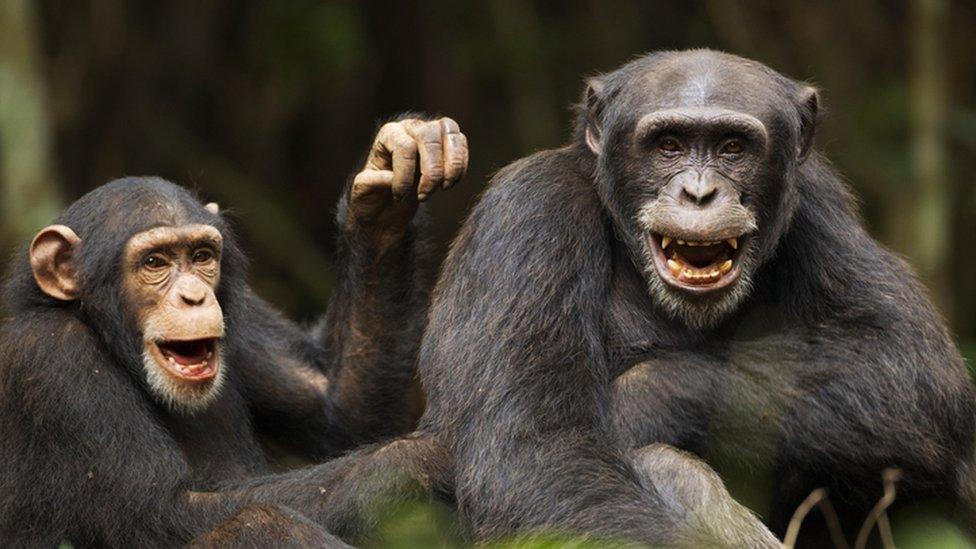Orcas use seaweed to help scratch each other's backs
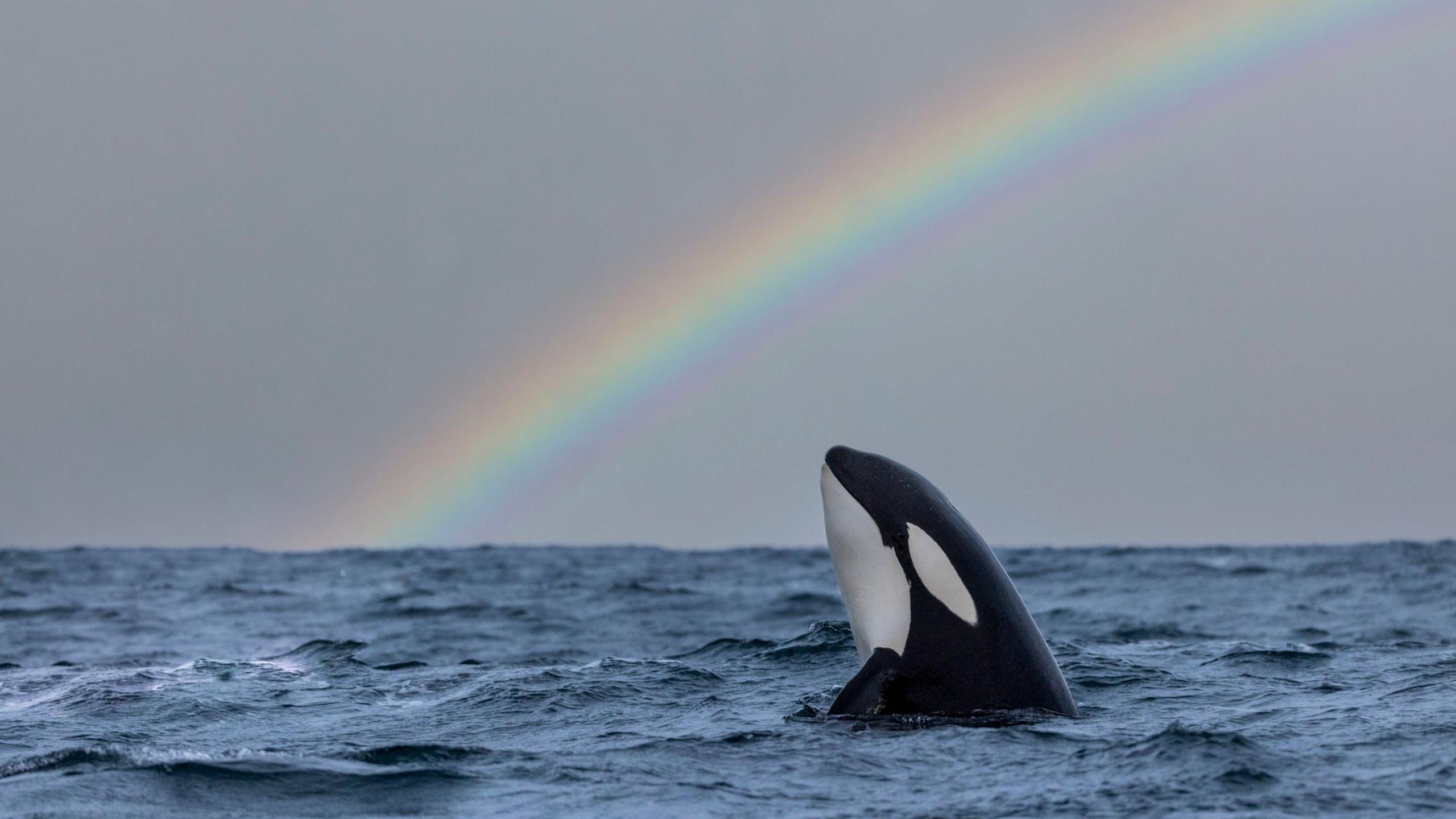
- Published
Isn't it annoying when you've got an itch on your back that you just can't reach? Well orcas have found a way around that according to researchers.
Scientists at the Centre for Whale Research (CWR) and the University of Exeter have observed the marine mammals making seaweed tools to massage and scratch each other's backs with.
Dr Michael Weiss from CWR said they were "amazed" when they first noticed the behaviour.
Although the population of whales has been studied for 50 years, it's the first time the behaviour - called allokelping - has been observed as the cameras haven't been able to record in as high a quality before to see it.
More cool animal behaviours
Clever fish 'use tools to open shells'
- Published1 April
Chimps show others cool things they see, just like us
- Published16 November 2022
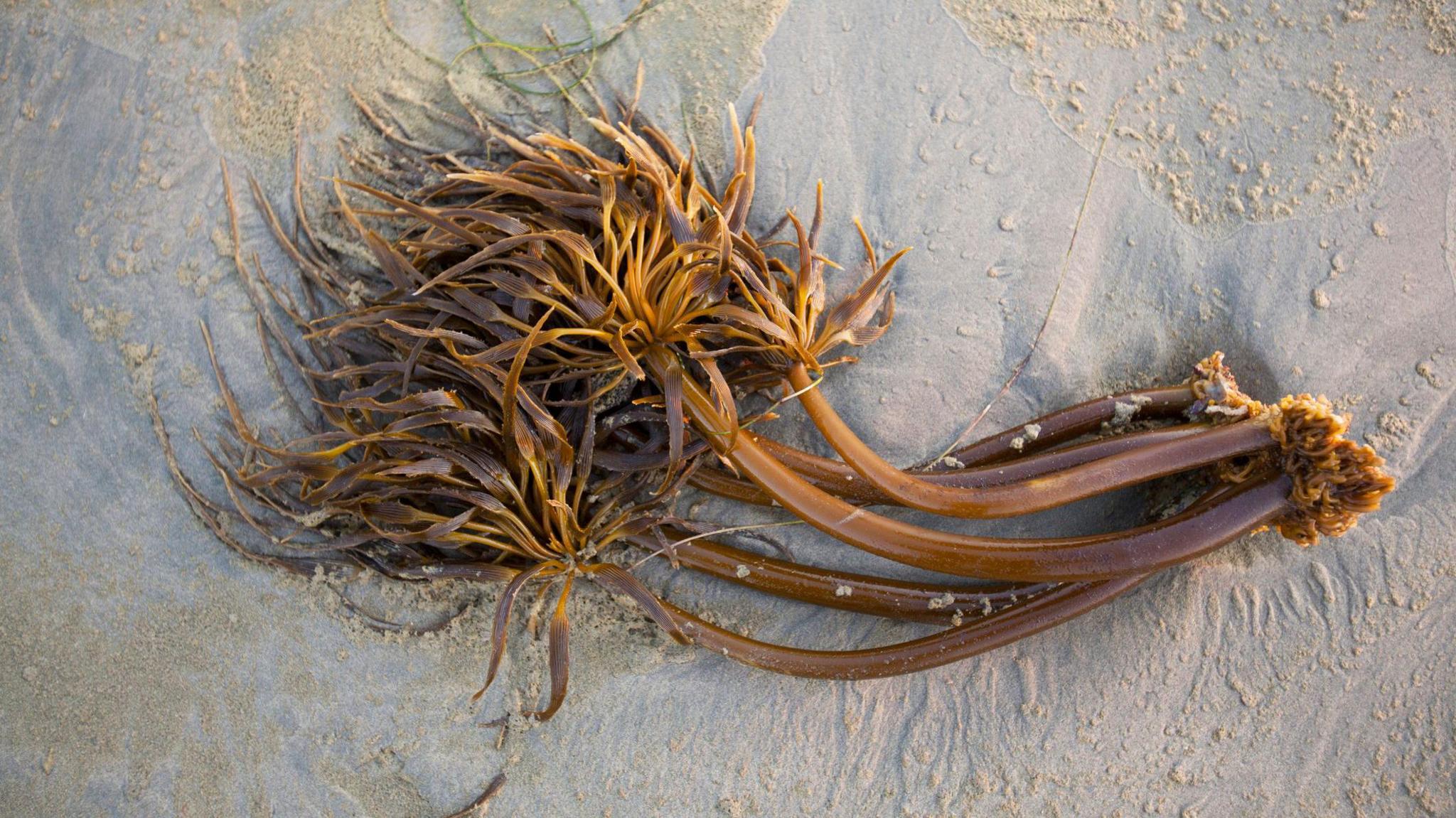
This is bull kelp - the type of kelp the orcas have been seen creating the back scratching tool out of
Allokelping involves the orcas detaching lengths of seaweed called kelp and biting off the end of it.
Dr Weiss describes kelp as "firm but flexible, like a filled garden hose, with a slippery outer surface" adding "I suspect these features make it an ideal grooming tool."
Once they've shaped it into a tool, they will put it between themselves and another orca and start massaging each other with it.
The behaviour was filmed by drones off in the Salish Sea, in the inland waters of Washington in the US.
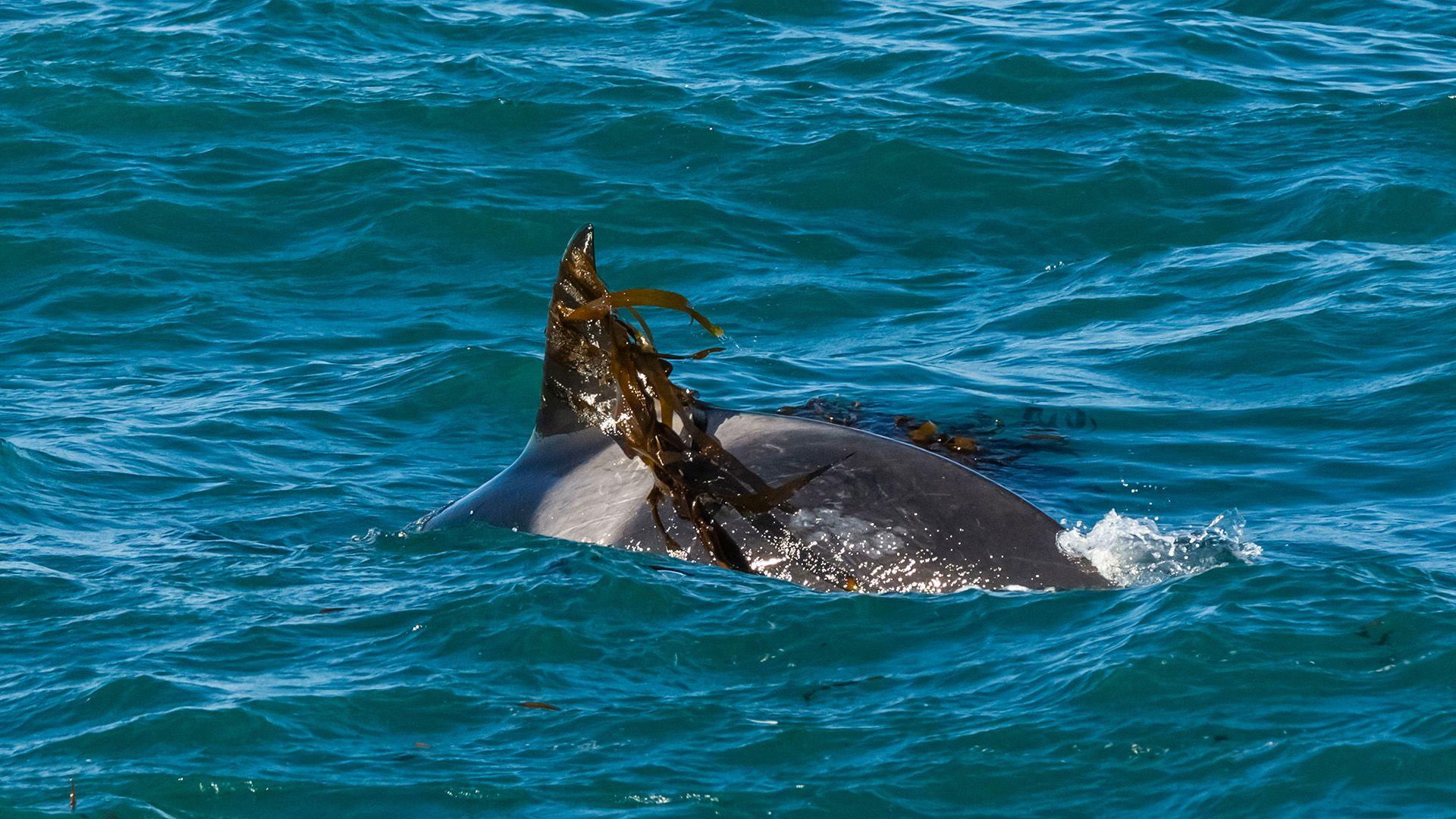
Orcas have been seen 'kelping' which looks like they're playing with seaweed
There are whale species where 'kelping' has already been observed. This is where whales move among the seaweed and sometimes wear it like a hat to keep their skin healthy.
But allokelping is different because the kelp is specifically shaped by two whales working together.
The behvaiour was seen in both males and females of all ages, although they were most likely to pair up with close relatives of their mothers or those of a similar age.
Professor Darren Croft from the University of Exeter said: "We know touch is really important.
"In primates - including humans - touch moderates stress and helps to build relationships.
"We know killer whales often make contact with other members of their group - touching with their bodies and fins - but using kelp like this might enhance this experience.
"It might also be important for skin health. Whales and dolphins have a variety of strategies to help them slough dead skin, and this may be yet another adaptation for this purpose."
More stories like this
- Published8 February 2023
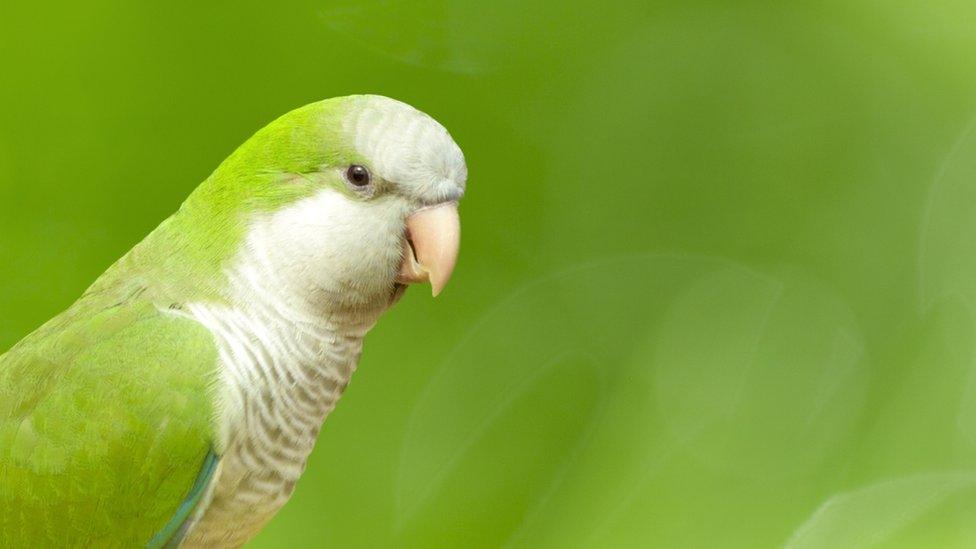
- Published8 March 2023
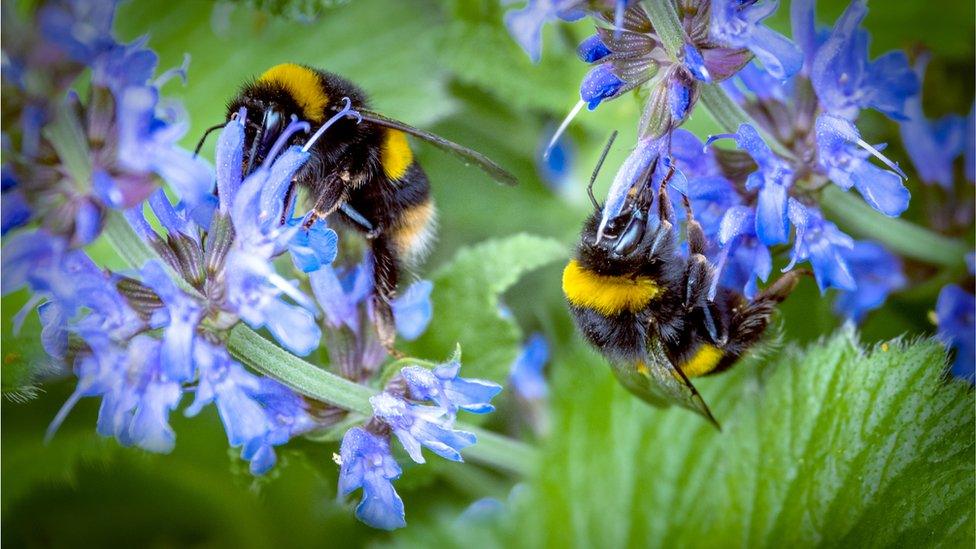
- Published17 March 2023
